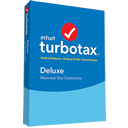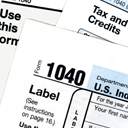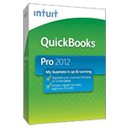
Every year at summertime, thousands of students begin their first summer jobs or internships. Some will think of or hear about tax implications and responsibilities, but the majority of teens will be unaware of all the consequences, simply excited to land a job. Here are few things to keep in mind when starting your first job.
One of the outcomes of making money is fiscal obligation to the US government. As Benjamin Franklin once said, “…in this new world nothing can be said to be certain, except death and taxes” you too will have to pay part of your income in taxes (even on your earnings from tips). Your employer will automatically withhold portion of your earning to pay social security and Medicare taxes, but you are also accountable for reporting tips you receive and consequently paying taxes on this form of income as well.
When you first sign an employment contract, one of the documents you will have to give to your employer is a W-4 form. W-4 will be used to determine how much money to withhold from your paycheck as a tax payment. When you fill out that form, you tell your employer how many allowances you claim. The smaller the number of allowances claimed, the more tax is withheld. If you decide to claim more allowances than Personal Allowances Worksheet indicates, you might have too little tax withheld and once you prepare your tax return you might owe money to the IRS. It’s understandable that it might be difficult to determine the optimal amount to be withheld from your paycheck, especially if this is your first job. Luckily, you can always change that at any time and increase or decrease withholdings. IRS also offers Withholding Calculator that helps you determine the best scenario based on your particular situation. It is free and can be found on http://www.irs.gov/individuals/article/0,,id=96196,00.html I suggest you get familiar with the form as soon as you can because in many cases you might be asked to fill it out and return it while at the future employer’s office, without a chance to properly study it and determine what the best option is.
Do you have to include any allowances and have taxes withheld? Can your income be exempt from taxes? As always in cases like this the answer is yes and no. You can write EXEMPT in line 7 and your employer will not withhold any taxes if you had no tax liability the year before (you didn’t owe any money to Uncle Sam) and you meet one of the following condition:
- Your parents or legal guardian claim you as a dependent – IRS states that you cannot claim EXEMPT on your W-4 if your income is greater than $950 and you have more than $300 of unearned income, such as dividends or interest.
- No one claims you as a dependent in that case IRS established personal exception amount at $3,800
If you are absolutely sure that you will not make more than $950 as a dependent or $3,800 as an independent, then go ahead and claim EXEMPT. I think it is safer to just claim 0 or 1 on your allowance certificate (W-4) to avoid anything unexpected. If you have tax withheld but not make more that the amounts stated before, you will receive a refund (you have to file tax return). The worst-case scenario is that you claim EXEMPT and then make more than $950 or $3,800. Not only you’ll have to make tax payments to the IRS but also if you don’t pay before April 15th, you might face additional penalty fees.
Those of you who decide to pursue any labor activity that constitutes self-employment, you will have to pay self-employment tax, namely Medicare and Social Security taxes (you are exempt if you make less than $400). That means you will have to fill out another worksheet to determine your obligations. In this case we are talking about Form 1040 Schedule SE. There is a short and long version of that form, and a small diagram on the first page of the form helps you determine which one you should use. The main purpose is to accurately report earnings, apply any potential deductions, and determine your tax liability (all multiplications coefficients are included on the form). So who is considered self-employed? If you distribute newspaper, you might be treated as self-employed (depends whether you are paid hourly vs. sales made, and type of contract you signed – for clarification talk to your employer). Some businesses might decide to hire new workers as contract workers rather than regular employees in which case you would be considered self-employed. Instead of W-4 form you would have to fill out W-9 form which is much simpler but more disadvantageous as you have to pay the self-employment taxes. That means at the end of the year you have to pay income tax and payroll tax. On the other hand, subcontractors are offered higher pay rates to compensate for that fact.
Finally, develop good habits at your first job and keep everything related to your job well documented. If great deal of your income comes from taxes, keep a daily log of them (Form 4070A). Organize neatly all the receipts that might serve you for deductions (meals, health insurance, home office, retirement plan) and attached posted notes on them with details of each receipt. One year worth of receipts is a lot and creating a routine of managing all information on daily basis will make your life much easier during tax season.
Bottom line is, getting a new job is great news and that euphoria can distract you from analyzing the consequences at the tax season. Study the paperwork carefully, make sure you understand what you’re signing, and if you have any doubts ask for assistance among friends and family or even human resources department of your future employer.





